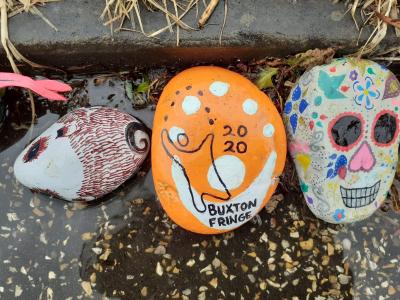Buxton’s Field of Dreams

As marketing officer at Buxton Festival Fringe I was involved in key decisions on how or whether to continue with this year’s open-access arts festival. With the Fringe taking place in July, spring was a critical planning time. Normally we would have been closing entries and thinking about the printed programme. This year we had around 100 listings from performers who had entered before the pandemic but whose live shows might well not be possible. Anything we printed might have ended up as a work of fiction. Could it be that for the first time in 40 years there might not be a Buxton Fringe?
It was an emotional time. Some on the Fringe committee had direct experience of what the virus could do. It felt almost tasteless to be thinking about anything other than the sufferings of the nation. More and more other events were being cancelled. Even I realised that there were bigger issues than the Fringe. I remember talking to a colleague and saying that there would be some who felt the arts were far from essential. “And they’d be wrong”, she replied and it was hugely gratifying to realise that it was not just me who was still hearing that insistent voice in my head maintaining that “the show must go on”.
A spontaneous Covid-snake of decorated stones in the park was an added reminder that people still needed to be creative, but we were determined not to condone unsafe practices. In the end we agreed not to cancel the Fringe but to run it in whatever way was possible and responsible. Realistically that meant scrapping the printed programme, extending the entries deadline (also making it free to enter) and encouraging online events.
Knowing how difficult it would be for performers to decide what they wanted to do or could do, we decided to contact each one individually to discuss options. Although we lost events, we gained some too after we put out feelers in the local community. With just a few weeks to go before the Fringe started on July 1st we had just over 100 entries again including some physical art trails, down-the-phone micro performances and even a socially-distanced comedy show. I felt as if a huge act of faith had paid off. We had not cancelled the Fringe even though we knew that most of our existing acts would have to cancel. We had built our field of dreams and they had come.
In July we experienced a lot of love from performers and audiences alike. Performers really opened up to me about the challenges they were facing. There was excitement too as we talked about being at the birth of a new kind of artform - online entertainment that was neither film nor theatre. My voluntary role for the Fringe gave me something to focus on other than the latest grim Covid stats during lockdown and it reminded me that human beings are very adaptable even in the face of global adversity.
Stephanie Billen
Fringe Marketing Officer 2020



